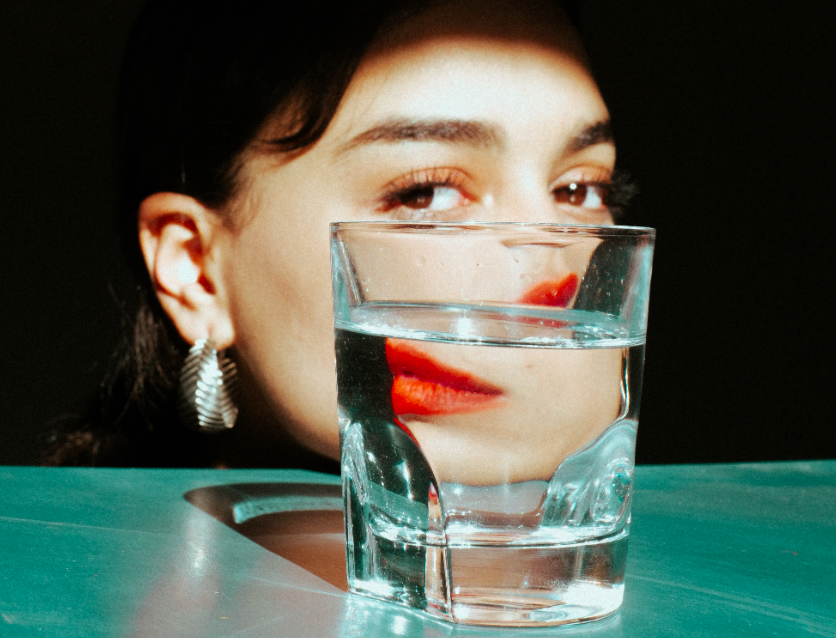
Turning down an alcoholic drink in a social situation can get pretty awkward, pretty fast.
“OMG are you pregnant?!” “Are you sober??” “How do you have fun?” get shot at you real quick. Hopefully, more people will become sober curious too, and less and less people will ask these questions.
Laura Willoughby MBE, founder of Club Soda (an organization offering support to and courses for those wanting to change their relationship with alcohol), says, “Sober curious people are those who are starting to reflect on their relationship with alcohol and thinking they might like to change it. Those who are mindful drinkers are actively doing so, or are taking action following a contemplative period.”
Ruby Warrington termed the phrase “sober curious” in her book Sober Curious. “I was going through a period in my life when everything looked perfect on the outside, but I was experiencing some of the worst anxiety of my life,” Warrington says. “I felt constantly overwhelmed at work and unable to keep up with the pressure. And I began to notice that when I drank, it was to unwind and escape from those feelings of disease.”
Warrington wasn’t drinking every day or addicted to alcohol, but she did begin to question the role it played in her well-being and decided to stop drinking. When she quit drinking, came relief from hangovers, sleepless nights, and anxiety, plus a new sense of self-confidence and new ability to cope with daily life. So, she called her approach “Sober Curious”.
“Drinking is something that many of us do without questioning it, even though we know it’s causing us pain. We drink out of habit and partly because we’re not presented with many of the tools that promise the same things that alcohol does: social ease, a quick fix to relax at the end of a hard day, a way to alleviate social anxiety, a way to forget our problems and spark our creativity, or a way to feel like it’s safe to be vulnerable in our close relationships. Alcohol promises all of these things on the surface level,” Warrington told Goop.
Warrington described what it means to be sober curious and the connotations being sober holds.
“The word ‘sober’ has such strong connotations of abstinence-based recovery programs and recovery from alcoholism. Even though ‘sober’ isn’t synonymous with complete abstinence from alcohol, we think of it that way. If you say, ‘I’m sober,’ people will automatically make assumptions about the ways you were drinking before you were sober and about the reason you became sober.” She continued, “Being sober curious means questioning everything about your relationship with alcohol – including the way that we as a society view and consume alcohol. It means becoming curious about what it means to live a sober life – all the benefits and the challenges. The only way you can answer that question is to not drink alcohol.”
Sarah Levy, author of Drinking Games, spoke to Poosh about being sober curious, and had similar thoughts. “‘Sober’ has such a negative stigma, and that connotation kept me from giving up alcohol long after it stopped working for me,” Sarah told the outlet. “I think we have a tendency to focus on the gory, messy details of people hitting ‘rock bottom’ when we talk about sobriety, but you don’t need to lose everything or have a dramatic bottom in order to give up alcohol,” she says.
If you don’t like the word “sober”, Sarah recommends saying you’re alcohol-free, sober curious or just choosing not to drink. “You are allowed to take a break from drinking if it isn’t making you feel good anymore – period,” Sarah says.
“There has been such a shift in our perception of mental health over the past decade. We have a deeper understanding of the nuances of conditions like depression and anxiety, and I see us trending in the same direction with the word ‘sober.’ It’s not one size fits all, and everyone’s experience and reason for going sober are different,” Sarah explains.
She suggests that we ought to change our perception of what “sober” looks like and instead focus on the positive aspects of sobriety.
“First and foremost, the quality of your sleep massively improves when you stop drinking, and sleep affects everything,” she says.
“For me, better sleep led to more energy, less anxiety, and the ability to show up for plans and be a present participant in my life. Within a few months of not drinking, I also lost weight, my skin got clearer and less dull, my hair and nails were healthier, and I generally just felt lighter and more present,” Sarah explains.
She notes that cutting back on booze, or quitting it entirely, isn’t the end to your social life.
“So many bars have amazing non-alcoholic options now, and I’m a big fan of brands like Kin and Ghia,” Sarah suggests. “I’m old school – I love a seltzer with a splash of grapefruit juice and a wedge lime. If I’m out and feeling adventurous, I’ll ask the bartender to surprise me with a fun mocktail. You can still switch it up and keep things interesting in sobriety.”
beauty beauty trends celebrities celebrity news christmas christmas movies coffee dating fall fashion fashion fashion designers fashion trends fashion week fitness hailey bieber hair trends halloween harry potter health Instagram Justin Bieber kate middleton King Charles meghan markle mental health milan fashion week movies music netflix new york city paris paris fashion week pregnancy prince harry princess diana prince william relationships royal family royals skincare street style television travel valentine's day wellness